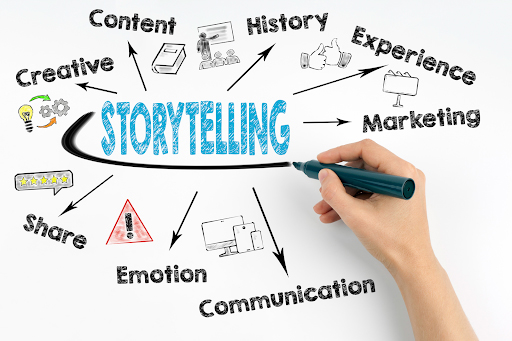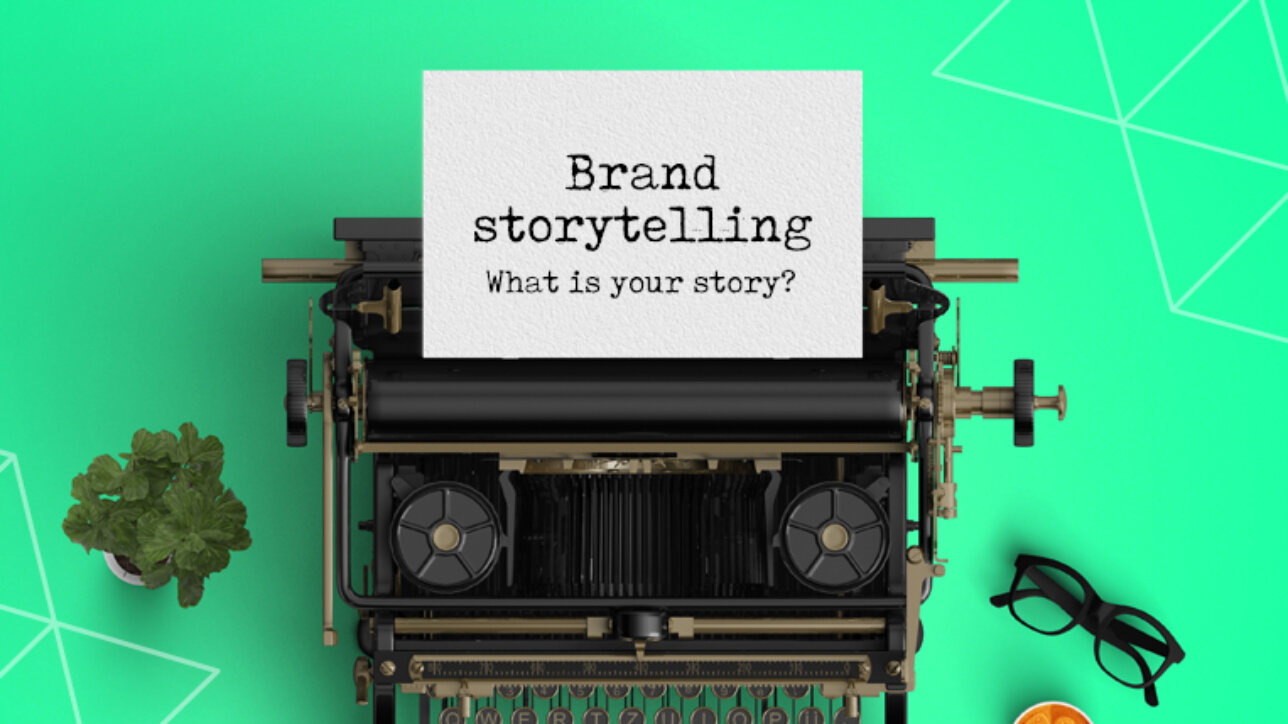“The Universe is made of stories, not of atoms.”, says Muriel Rukeyser.
We all know that words and visual graphics together make up the content.
The problem is that businesses are unaware of what makes a good content.
So how does your content stand out and appeal more to the consumers?
The answer is simple, Generate Self-Interest!
When you create content that’s intrigues, relates and encourages to take an action, the content becomes personalized and connects with the audience.
How does one add emotions to content?
Reveal your Brand Story.
Brand Storytelling does not mean you talk more about yourself. It means that you tell the audience about who you are and why you do what you do.
It is about the experience you create and make them look at your brand the way you do.
What is the story behind your brand?
What problem does your brand intend on solving?
What obstacles have you faced along the way?
How did the hard, bumpy roads create amazing experiences for your clients, and why?
These are some of the key questions you aim at answering in your story.
‘Out of all the tactics, why storytelling?’
To put it simply, stories are interesting and connect easily with the audience. When people find a narrative interesting, they dig deep into it and carry research on their own. Stories help gain trust and bring consumers a step closer to your brand. And of course, stories are way better than dry statistics and facts.
A research conducted by Pennsylvania University involving physicians has proven this point – the study showed that doctors perceive and remember the information about using anesthetics better if this information is offered in the form of a story about a patient.
Another research study (a sociological one), conducted by The Journal of Marketing Theory and Practice, showed that despite the content itself (whether there are kittens or celebrities), the success of a post is mostly defined by its story structure.
The Power of Words!
Words play a vital role in marketing. The choice of words and the way you frame it can have a great impact on your consumers.
An example of it would be a video of “Power of Words” where a blind, homeless man on a city street collect change. Initially, he held up a sign that simply said, “I’m blind, please help.” The video shows most people just glancing and walking by.
The turning point comes when a woman stopped and rewrote his sign to say, “It’s a beautiful day and I can’t see it.”
Why do these new words catch our attention?
They form an emotional connection between the experience of one person and another. They make the passersby relate in an entirely different way to what and whom they see. This short film illustrates how the power of words can dramatically change your message and effect upon people.
Let’s Get Started:
Just revealing a story will not boost your business, a good story will!
So grab your notepad and pen to jot the key factors to create a great brand story!
1. Tell True, Authentic Stories
Always remember that you shouldn’t make up stories just to create a “buzz” to your content. nobody likes inauthenticity, and that kind of approach will end up biting you in the end. – JuliaEMcCoy
Everyone has a story to tell, you just need to unearth yours!
Here are a few prompts that will help you discover your story:

- What is the history of your business?
- How did it begin?
- What made you come up with this idea and what got you to act upon it?
- Who is the hero of your story?
- What were the biggest failures/ obstacles, and how did you overcome them?
- Why is your brand so close to your heart?
Source: https://themarketingnutz.com
2. Add emotions and get personal
The entire point of storytelling content marketing is to make your audience feel connected and see your brand the way you see it. To create more engagement and connection, you have to get more personal!
Nostalgia, humor, passion or even fear can bring out an emotional reaction.
3. Support your story with data
Deep research is what differentiates a remarkable story from a normal one.
Before you write any kind of story, you should do thorough research, find some statistics, check up the facts and look for rare and exciting information.
Your stories can be flavored by specific data aimed at people with rational thinking. This information can then be an additional argument for getting your product.
Which of the following examples sound more convincing to you?
- Security violations are a serious problem for big enterprises these days
OR - Did you know that 60% of security violations take place in big enterprises?
The second example has the logical appeal – the fact that will influence people’s decision to buy. So, do your homework before you create anything.
4. Visualize

The use of visuals always speeds up the time taken to understand a story. Not just visual but using other sensory mediums can enhance the way your audience experiences your brand.
Eg – Doubletree is famous for offering free Cookies to their patrons. So much so that now people develop positive feelings around the brand based on their tasty experience.
5. Get some Feedback before the launch
When you’re finished, show your story to an outsider who has absolutely no connection to the project. Ask them what they think; if it is interesting, or just confusing? Take that constructive feedback and use it to peel away the layers that don’t add value to the story.
You may have to simplify the data or the visual, or find different words to tell the story. This may take more time, but it’s important.
Conclusion:
A story instantly adds warmth and makes your product more human. A good story can help your ideal customer identify with your brands interests and beliefs. To conclude – an amusing story helps you stand out among your competitors.





